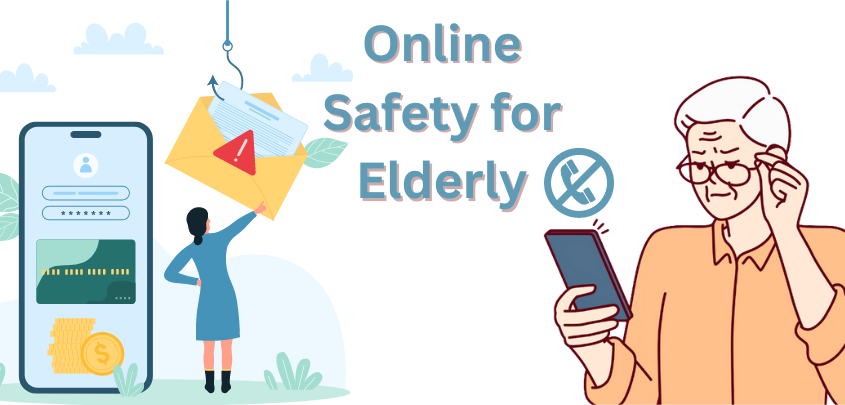
15, Apr, 2024
Seniors vs. Scams: Staying Safe from Online Threats
Seniors are especially susceptible to many kinds of fraud and scams due to factors like their tendency to be gullible, lack of experience with technology, and possible financial resources(such as lack of knowledge about UPI, online bank transactions, etc. ). Often, Scammers exploit these weaknesses through various methods, including tech support scams, identity theft, phishing scams, online investment scams, romance scams, lottery or sweepstakes scams, and relative in distress scams.
Cyber security tips for the Elderly
Tips the elderly can take into consideration while using the various online platforms.
- Avoid Clicking on Links in Emails:
Seniors should exercise caution when they get strange or unfamiliar emails, even if they seem to be from someone they know. Don’t click on links in emails from unfamiliar senders. Malicious links in emails, texts, and social media posts may direct you to phishing websites or download malware (any kind of malicious software that is intended to damage or take advantage of any network, service, or programmable device) onto your device. Steer clear of clicking on links from unidentified sources, and always confirm the legitimacy of messages before acting. - If you don’t know who sent the attachment, don’t open it:
Seniors who open attachments from emails, texts, or social media should proceed with caution. Malware that poses as harmless files could be found in attachments. Seniors must avoid opening attachments from strangers, especially if they contain .exe, .dmg, or .zip files. Elders should, if in doubt, confirm with the sender before opening any attachments. - Decline Unwanted Calls and “Robocalls”:
Even if the caller ID seems familiar, seniors should be wary of unsolicited phone calls. Scammers may easily impersonate phone numbers and trick the elderly with voice phishing. Even when accepting legitimate phone calls, seniors should screen phone numbers for scammers/spam with apps such as Truecallerpre-screen all calls and refrain from providing personal information or making payments over the phone. - Never click on or respond to pop-up windows:
The elderly should be on the lookout for knockoff or unrecognised security software download links and scareware pop-ups that falsely suggest their computer is infected. Elderly individuals should be cautious of clicking on buttons or pop-ups that may lead to scareware or harmful downloads.Additionally, utilising an ad blocker or pop-up blocker can add an extra layer of protection. - Refrain from carrying out transactions on open networks:
When utilising public or unprotected networks, the elderly should refrain from performing transactions or disclosing personal information. Open Networks with public Wi-Fi access are prime hotspots for hackers who want to obtain private information.Seniors who want to protect their internet activity may think about utilising a virtual private network (VPN) or postpone making purchases until they have access to a secure network. - Being Prepared to combat online scams and malware:
Being aware of the risks of online scams is a strong first line of defense for senior citizens against getting scammed. Being prepared can provide an additional line of safety against malware and other online risks by setting up reliable antivirus software on their devices. By assisting in the identification and quarantine/removal of harmful software, antivirus software protects the user’s privacy and promotes a safer online environment
Seniors can lower their chance of falling victim to online scams and have peace of mind when navigating the internet by being knowledgeable, proactive, and prepared when it comes to combating online scams.
In conclusion, seniors can safeguard themselves against cyber threats by exercising caution online, avoiding suspicious links and attachments, and installing reliable antivirus software. By staying vigilant and proactive, older adults can enjoy a safer digital experience, protecting their personal information and financial well-being in the process.
